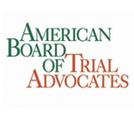For many Los Angeles residents, buses are common means of transport. However, due to the many dangers on roads and highways, accidents are inevitable despite the many safety precautions. If you have been involved in an accident, you are likely to suffer devastating damages.
These damages can be physical, psychological, social, and economical. California law provides you with legal rights as a bus accident victim to seek compensation for such damages. You can file a personal injury lawsuit against at-fault parties in your accident. You will need a competent personal injury lawyer to take up your case and ensure you get a reasonable settlement or favorable court verdict.
At the Los Angeles Car Accident Attorney law firm, we provide top-notch legal representation and expert guidance for our injured clients. We ensure our clients get justice and relief from all accident-related traumas and other damages. In this section, our car accident attorneys explain your legal rights and options as a bus accident victim and how you can win a personal injury lawsuit.
Winning Your Case
In California, you are eligible to sue and seek compensation for damages from a bus accident. However, obtaining compensation is a complicated process that requires an experienced lawyer’s help.
Steps to Take After a Bus accident
After a bus accident, you must make personal safety and health your top priority. Below are a few steps to take after an accident:
Seek immediate medical attention: If you could manage to leave the bus or scene of a crash safely, you must see a doctor immediately. The possibility of a bus exploding after crashing is also high. Therefore, the faster you can detach yourself from the scene, the better. If your injuries are devastatingly severe, you may be unable to access a doctor independently and may be brought to the hospital for urgent treatment and care.
Report the accident and keep tabs with witnesses: If your condition is not a case of emergency, make sure the incident is reported to the police and obtain a report. The bus driver’s most logical thing to do is report the crash to his superiors and the authorities. However, do not rely on the assumption that they will report it.
Call the police right after the accident if you are in a position to do so for prompt assistance. Explain in detail what transpired so that your testimony is put on record. Identify possible witnesses and let them add their insights into your side of the story.
Collect evidence: Take pictures and videos of the crash if you can. Photographic evidence can be a great advantage when filing a personal injury lawsuit. Be sure to capture as much footage of the crash as you can, including stoplights, skid marks, the wreckage of the bus and nearby vehicles, traffic signs, and the general location. If you can obtain additional evidence and testimony from witnesses, the better.
Keep tabs on all injuries and damages: The success of a personal injury lawsuit will depend on the evidence at hand. If your evidence is not substantial enough, you may not have a strong case. Therefore, organizing and preserving evidence related to damages from a bus accident is highly recommended. Ensure you collect and safely organize all bills, receipts, and other records to prove all financial damages you incurred due to the crash. These could be medical expenses such as:
- Emergency transportation to the hospital such as ambulance
- Prolonged in-patient stays at the hospital before a full recovery.
- The number of surgeries conducted.
- General treatment by specialists and additional outpatient visits
- Psychotherapy sessions
- Counseling
- Required medical assistive devices such as wheelchairs, crutches, and walkers
At-fault Parties of Bus Accidents
Multiple parties can be held liable for a bus accident, depending on the bus involved. These defendants are:
- The bus driver
- The bus drivers supervisor
- Bus maintenance company
- Tour bus operator
- School bus operator
- Bus owner
- Bus spares company
- Government transport agencies
School Bus Accident
When it comes to transporting children to school, school buses are considered a safer means of transport than cars. Sadly, accidents still happen. In an incident involving a school bus, the school and the driver can be held accountable for the children’s damages and injuries. Once it is established that the accident was due to negligence on the driver’s part, liability can depend on two things. Was the bus being operated by the school, or did the school contract another company for transport?
If it's the former, the school bears the responsibility for the driver's negligence. On the other hand, if it is the latter, the company contracted can also be held liable for the driver's negligence. An employer can be held accountable for damages a negligent employee causes while carrying out his/ her duties. This law also makes provision for an accident victim fully compensated since the employer is better placed financially to pay for the damages. It is also a strategy used to curb accidents of the same nature to discourage future incidents.
Tour Bus Accident
California has a significant number of tour bus companies operating across cities and state borders. Drivers of these tour buses often work under pressure to maintain rigid time schedules and even covering long distances. This can lead to driver fatigue, which is a safety hazard. Nevertheless, the tour company bears the responsibility for the bus driver's negligence no matter the cause. The situation is further compounded if it is established that their employment procedure was not up to specification.
Failure to review the driver's qualifications during training, hiring, and supervision can be costly. The employer can be held responsible for negligent hiring. All road users have a duty of care for one another, but drivers of large commercial vehicles are subject to a higher duty of care and safety.
Tour bus companies and other commercial bus operators are referred to as common careers or carriages. These are businesses charging a fee for transporting people. They are subject to a higher safety standard under California law. California Civil Code enacted in 1872 stipulates that:
"A carriage of persons for reward must use the utmost care and diligence for their safe carriages and must provide everything necessary for that purpose and must exercise to that end a reasonable degree of skill." A tour bus company that fails to conduct proper maintenance and inspection of their buses or adequate training and supervision of their drivers violates this code.
Public Transit Bus
The responsibility for bus crashes involving public transit buses falls on government authorities or agencies. Such buses are operated by a state, county, city, or any regional government authority. Requirements for a personal injury lawsuit against the government differ from those against private companies.
Typically, all state governments have a "sovereign immunity" claim when it comes to such litigation. This sovereign immunity was, however, waived by California state in incidents of employee negligence. Following an accident caused by a negligent driver, the injured victim can file a lawsuit against the bus line’s government authority.
Hiring a Personal Injury Attorney
Contrary to popular belief, enlisting a lawyer’s services is not an automatic requirement to make a courtroom presence. While there is no guarantee, it is possible to have an out of court settlement for your case. This can save you additional stress that comes with a trial as well as court expenses.
Logically, your lawyer can have a forensic expert calculate an estimate of your claim's worth and time required to settle. For a successful claim, your attorney must be able to achieve favorable results within a short period. Here are some expectations your lawyer should meet:
Commitment to Your Case
Irrespective of the magnitude and size of your case, your lawyer should handle your case with dedication and passion. He/ she should treat your case as essential, thereby giving it undivided attention. The objective should be achieving a reasonable amount of compensation you deserve. Your lawyer should:
- Carry out a thorough investigation into the crash to ascertain the cause and the parties responsible
- Conduct a full analysis of every available evidence to build a solid case for your compensation claim
- Give you honest insights into the case and what to expect throughout the legal process,s as well as the desired outcome of your case.
- Employ all legal techniques and necessary defenses for the success of your trial
Proper Communication
The success of your injury case is dependent on communication between you and your attorney. Ensure all communication channels are open, and your attorney can be reachable on the phone at any given time. He should be able to share with you an overview of your case, it's progress and address whatever concerns you may have
First-rate Competency
You should expect your injury lawyer to maintain competency while handling your case. Since lawyers are also humans capable of making mistakes, they should exercise caution. He should be able to handle your issue with all the knowledge and expertise he can muster to avoid any malpractice that may jeopardize your claim.
No Upfront Payments
In addition to the above, your lawyer must not demand any upfront payments when you enlist his/her services. You should pay him/her after the legal process, probably after receiving your compensation. The attorney fees should be a certain percentage of the settlement. Before you sign any agreement with your lawyer, it is advisable to discuss and agree on your payment.
Be Actively Involved in Your Case
For your claim to go through successfully, both you and your attorney must work together as a team. This means that you must play your part even as your attorney fulfills his legal duty. Therefore, on your part, you should:
Be Honest: You have so much at stake, and the last thing you want to do is to jeopardize your claim by being dishonest. Every detail is crucial in winning your case. Therefore, share every fact that can support your claim and do not hide or destroy any shreds of evidence from your attorney. If you do, the chances are that the information may resurface in your litigation process, thereby comprising it.
Communicate: Make yourself available from the onset of your litigation. Your attorney may need to contact you from time to time, so you must be receptive. Ensure you share your preferred mode of communication, so you are reachable. Also, participate fully in your case by doing follow-ups and raising whatever concerns you may have.
Remain Positive and Co-operate: Some information about your case may sound unpleasant and disappointing. Your attorney may point out some legal weaknesses in your case of an unfavorable estimate of your claim. The value may be factual but not what you could be expecting. Instead of feeling frustrated, you should remain positive and cooperative. Avoid unrealistic expectations and be open-minded. Remember, your lawyer has your best interest at heart, so work together to develop a counter-strategy that will achieve a successful claim.
Negotiations and Settlement with Liable Insurance Company
The process of settling with an insurance company is very complex and entails arguing and bargaining. Your attorney will need to work alongside an insurance adjuster to achieve successful negotiations. Your attorney’s recommended time to begin the negotiation and settlement process is after your condition has improved and you have been released from hospital care. He/she begins the process by serving the liable insurance company a demand letter. The letter should be presented with all the necessary documents and evidence.
The company may refuse or comply with the demands of your letter. This can be based on how reasonable those demands are. The insurance adjuster can seek proof of liability of the alleged party responsible for the accident. He may also require a doctor's report on how long you will undergo physical therapy. If your attorney and the insurance company fail to reach a favorable agreement after a few appointments, you can then seek justice by taking your case before a judge and jury. When negotiating for a settlement, your lawyer should ensure that you:
Have a Specific Amount in Mind: You must know how much you are entitled to compensation for your damages. Discuss with the insurance adjuster to come up with a settlement that you believe can fully pay for all your damages. Your lawyer and the insurance adjuster can offer expert advice on this.
Mention your emotional pain
The best way to negotiate for a settlement is to present your most vital points. This can be a strong emphasis on the cause of the accident and the at-fault's responsibility resulting in costly medical expenses and other physical injuries you sustained. Emphasizing your emotional points can work to your advantage and yield positive outcomes. You can achieve this by presenting photographic evidence of your injuries, damaged property, and other personal losses. While emotional damages have no specific dollar value attached to them, these options can positively impact the settlement process.
Document your compensation agreement: Upon reaching an agreement with the insurance company, make sure you fill and sign an agreement form and letter. The letter should stipulate the agreed amount for your compensation. It should also present the terms of the settlement it covers and the time you should receive it.
Filing For a Wrongful Death
If your loved one is killed in a bus accident, you, as a surviving family member, can file for a wrongful death lawsuit so that the liable parties are held accountable. Family members who are eligible to file such a suit under California law include:
- Spouse or domestic partner
- Children
- Grandchildren
- Any person who is legally entitled to the deceased's estate can file a wrongful death claim
The family can seek compensation for their loss and other damages suffered. The losses comprise both economic and non-economic damages such as:
- Medical bills incurred during the deceased's stay in hospital before succumbing
- Funeral expenses and burial permits
- Loss of financial support and future earnings
- Loss of consortium
- Loss of companionship and intimate relations
Common Injuries in a Bus Accident
Injuries suffered in a bus accident can be more catastrophic than accidents of other average vehicles. This is because other motor vehicles, such as cars or trucks, have protective safety features that can minimize the impact of an accident. Such features are airbags, bucket seats, seatbelts, and rollover protection. The same cannot be said for bus passengers who often sit facing sideways, the front or back of the bus, and can be even standing if the bus is crowded. Victims of a bus crash can suffer injuries which are unique to bus accidents, such as:
- Head and neck injuries
- Back and broken bones
- Internal injuries
- Loss of limbs
- Paralysis
Compensations Available in a Bus Accident Claim
A bus accident can be devastating with life-long injuries and loss of life. Therefore, no amount of money can undo a harm or bring back your loved one. The purpose of compensatory damages is to cushion the bus accident victim and offer relief from additional suffering that may compound your already painful experience.
There are two types of compensatory damages a bus accident victim can file for. These are economic and non-economic damages. Economic damages include expenses incurred by the victim after the accident, such as medical expenses and personal income. Non-economic damages include emotional distresses or new challenges arising from the accident, such as permanent disability. A bus accident victim can also file for punitive damages to punish the at-fault parties for their negligence. Here are some economic and non-economic damages you can be compensated for.
- Emergency transportation to the hospital
- Hospital bills
- Cost of drugs and medical supplies
- Physical therapy
- Counseling
- Home care
- Lost wages and earning capacity
- Cost of vehicle repair
- Pain and suffering
- Emotional distress
- Loss of enjoyment of life
- Loss of consortium
- Legal fees
Statute of Limitations
From the very moment you were involved in a bus accident, there is a clock ticking to a deadline when you should file a personal injury claim. Lawsuits filed against a government entity such as a city or state operating a public transport bus are allocated a time limit of 24 weeks. This means that should you be involved in a crash with a metro bus, you have up to 6 months to file your claim against the authorities. However, for other private parties, the statute of limitations is usually two years. Every accident injury victim should act immediately within the stipulated time limit. You can contact a professional Los Angeles personal injury specialist to take up your case within the stipulated deadline.
Find a Competent Personal Injury Attorney Near Me
A bus crash is a messy and painful experience. While accidents can be unpredictable, they can sometimes be avoidable. Therefore, do not assume that you were at the wrong place at the wrong time. Even if you were partially to blame for the crash, you could still file for litigation. The best way to obtain a successful court verdict and reasonable settlement is by involving a competent legal expert in your decision.
At the Los Angeles Car Accident Attorney, we empathize with our injured clients and will fight your case to a just and fair outcome. We will draw from our experience and apply every available legal procedure to win your case. Reach out to us today at 424-237-3600 and let us be there for you in your time of need.






